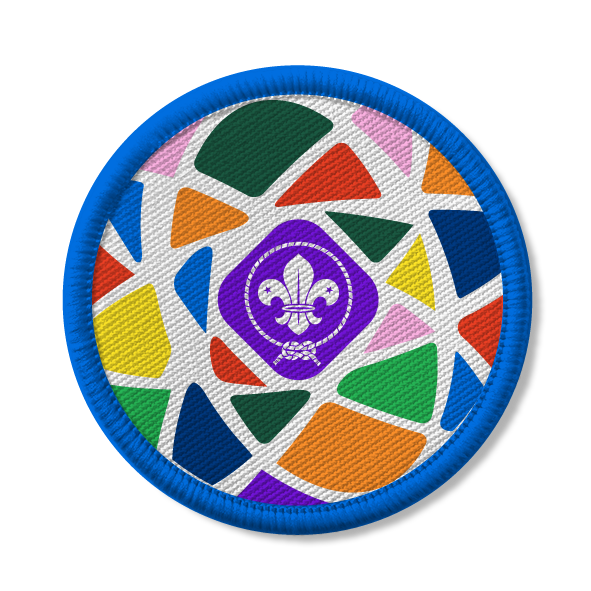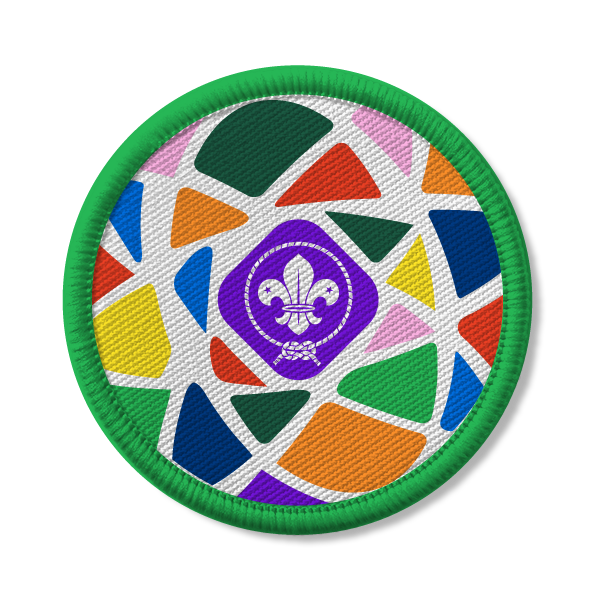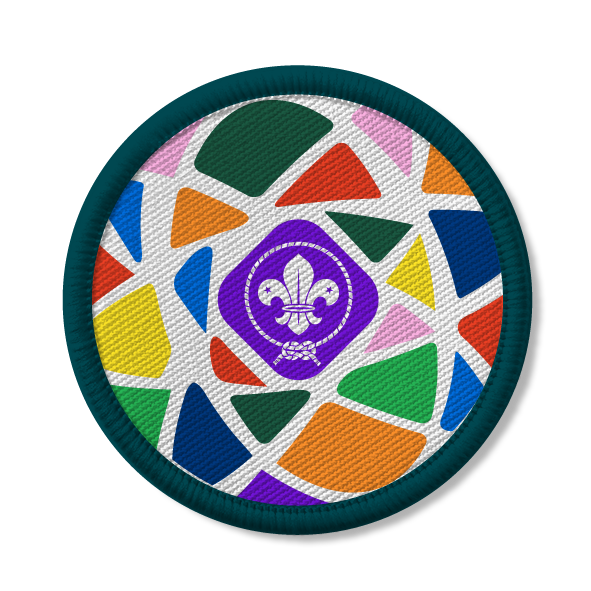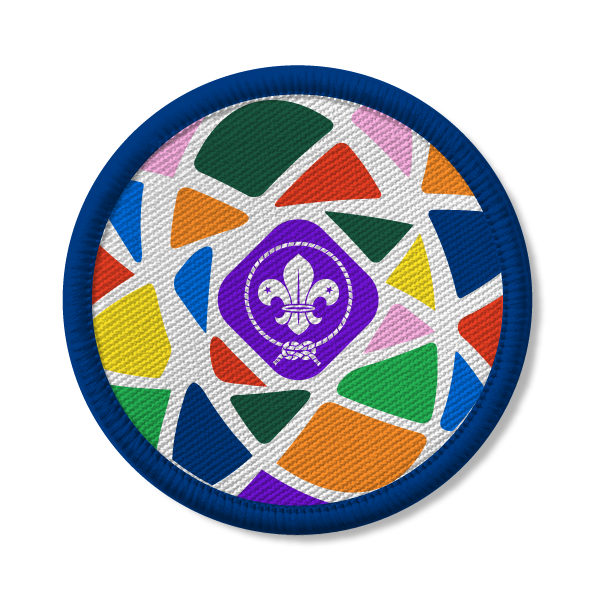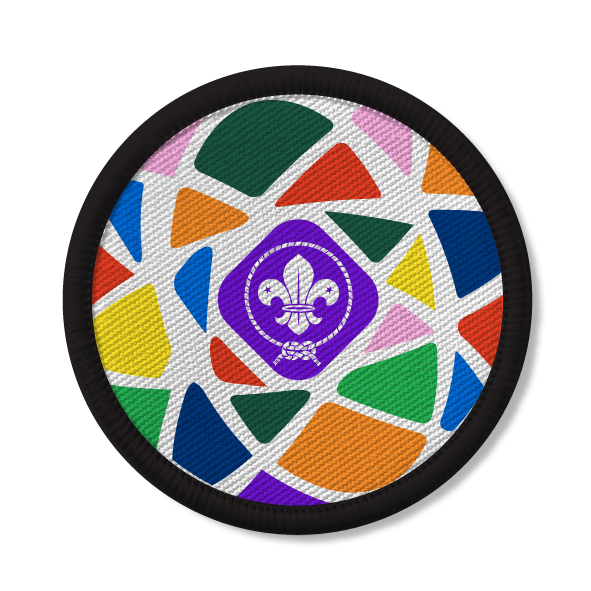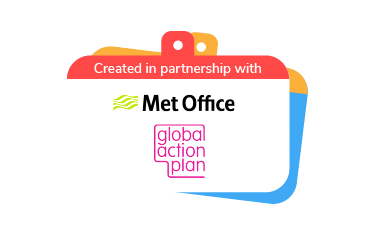
Spread the word - air pollution
You’ll need
- Pens or pencils
- A4 paper
- Recording device
Before you begin
- Use the safety checklist to help you plan and risk assess your activity. There's also more guidance to help you carry out your risk assessment, including examples. Don’t forget to make sure all young people and adults involved in the activity know how to take part safely.
- Make sure you’ll have enough adult helpers. You may need some parents and carers to help if you’re short on helpers.
The focus of this activity is air pollution. This is the release of harmful chemical and substances into the air we breathe, both indoors and outdoors.
Air pollution affects us all. The particles and gases that make up this pollution enter our bodies, and can be damaging to our physical and mental development.
By breathing in the pollutants, they can have impact our lungs, and enter our blood stream, damaging our heart or brain. The more of these pollutants we breathe, the higher the risk of harm and the bigger impact it can have on our health.
There are many causes of air pollution.
Outdoor air pollution's caused by:
- vehicles (cars, vans, planes, trains, boats and so on)
- factories
- farming
- burning fuel (bonfires, wood burners, barbecues and so on)
Indoor air pollution is caused by:
- cooking
- chemicals in cleaning or personal care products
- dust
- mould
Outdoor air quality in the UK has improved significantly during the past 40 years. But there is no safe level of air pollution, and there is still more we could do.
All children
Reduce exposure to air pollution
- Open windows to let the fresh air in – especially when your family is cooking or cleaning.
- Discover quieter routes to school and other places you travel to; avoiding busy roads where possible. Walk on the pavement that’s furthest from the road, especially if you're on a busy road.
Reduce our contribution to air pollution
- Ask parents/carers to get fragrance-free milder cleaning and personal care products.
- Try to avoid non-essential deliveries or chose the low emission delivery option when shopping online.
- Ask parents/carers if you can walk, cycle, scoot, wheel or take public transport whenever you can instead of driving in a car.
- Don’t idle – ask adults to turn off their engines when the car isn’t moving, and especially around schools.
- Raise awareness about air pollution and what needs to be done to improve it at your school (e.g. via school councils) and in your community. Call on government, businesses and other decision makers to help make the changes you want to see, for a cleaner air future!
Children with health conditions
- Ask parents/carers not to burn things indoors e.g. candles and log burners.
- Ask people not to smoke in your home, or near you.
- Open windows to let the fresh air in – especially when your family is cooking or cleaning.
- Ask parents/carers to get fragrance-free milder cleaning and personal care products.
- Discover quieter routes to school and other places you travel to; avoiding busy roads where possible.
- Talk to your doctor or nurse about how air pollution impacts your health condition. Ask for more information about what you and your family can do.
- Ask an adult to help you sign up to air pollution alerts and follow the guidance that it gives you
- Ask an adult to help you find out more information about your health condition and air pollution (e.g. Asthma Lung UK website)
- Sign up to an air quality alert to know when air pollution levels are particularly high so that you can avoid it.
Start the activity
- Gather everyone into a group and discuss air pollution, what it is and how it affects us.
- Split everyone into smaller groups, then give each group a large piece of paper and some pens.
- Ask groups to split their paper into two by drawing a line down the middle. In the first column, ask them to write as many reasons as they can think of as to why air pollution is bad. They should think about what it does to us and what it does to the environment.
- In the second column, ask the groups to write as many things as possible that we can do to help protect ourselves and our environment from air pollution. They should try to think about simple actions, such as opening a window, right up to bigger changes, such as banning fossil fuels.
- Everyone should come back together, and each group should share their ideas from both columns.
- Explain to the group that you’re going to make a video about air pollution. It’ll have two parts, which will be why air pollution is bad and what we can do about it.
- Give each person a sentence for one of the sections and record the young people saying them.
- When your video is finished share it with the young people and share it to your local social media channels. Is there anyone else you could share it with or tag? E.g. a local decision maker or business leader who could help make improvements to air quality where you live? Make sure you have photo and video permissions for everyone before sharing your video. Be sure to tag @scouts too.
- You could record your sentences as one long continuous video, or you could create shorter, individual clips and edit them together afterwards.
- There are many video editing apps that are free to use and available for Android and Apple users, such as iMovie or InShot.
- Think about your background. Do you want to change it or keep it the same? Does it reveal any personal information, too?
- Make sure that the young people can’t be easily identified.
- Phones have excellent microphones, but tablets and laptops may not be as good.
- Think about the space your recording in. A large hall or empty kitchen will sound different compared to a small cosy space, with lots of items for noise to bounce off.
These resources were produced by Scouts and Global Action Plan as part of the Clean Air Programme, which is supported through the UK Research and Innovation Strategic Priorities Fund (SPF) and delivered by the Met Office and other partners.
Reflection
This activity helps us all to think about air pollution and how it can harm us and our environment. Taking action for clean air can be fun!
Together we made a video to explain to others the danger of air pollution and some steps we can take to protect ourselves and reduce the harm to our world.
Why is important to tell others about this? Do you think your video will be effective? How else could we tell others?
This video was shared with Scouts and our local groups. Who else should we share it with? Why?
Safety
All activities must be safely managed. You must complete a thorough risk assessment and take appropriate steps to reduce risk. Use the safety checklist to help you plan and risk assess your activity. Always get approval for the activity, and have suitable supervision and an InTouch process.
- Electronics
Remove any equipment you’re working on from the power source before you begin. Never assume the power circuit’s off – test it with a voltmeter (and then test it again to be sure). Only connect power to a circuit once you’ve finished working on it and have checked your work. Make sure your circuit isn’t overloaded, and return any covers you’ve removed.
Make sure that all electronics equipment is properly grounded. Use the right electronics tools, and always replace damaged equipment (for example, replace cables rather than repairing them with insulating tape). Always have safety equipment including a fire extinguisher, basic first aid kit, and mobile phone nearby.
- Phones and cameras
Make sure parents and carers are aware and have given consent for photography.
- Online safety
Supervise young people when they’re online and give them advice about staying safe. Take a look at our online safety or bullying guidance. The NSPCC offers more advice and guidance, too. If you want to know more about specific social networks and games, Childnet has information and safety tips for apps. You can also report anything that’s worried you online to the Child Exploitation and Online Protection Command. As always, if you’ve got concerns about a young person’s welfare, including their online experiences, follow the Yellow Card to make a report.
You could have a range of pre-prepared sentences for young people to choose from and sort into their columns.
All Scout activities should be inclusive and accessible.
